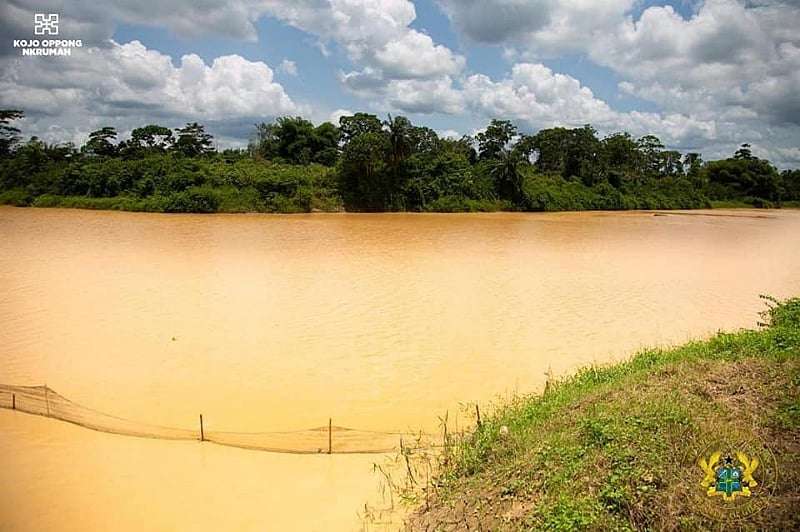The Ghana Chamber of Mines (GCM) has called for the rigorous enforcement of mining regulations to address individuals who violate the country’s mineral laws, stressing the importance of targeted actions rather than broad, generalized approaches that affect both legal and illegal mining operations.
In an interview with journalists, the Director of External Relations and Communications at the Chamber, Ahmed Nangtomah, underscored the critical distinction between responsible mining and illegal mining, and how misguided strategies could undermine efforts to address the core challenges facing the sector.
“There is a distinction between responsible mining and illegal mining. It is counterproductive to impose a ban on activities that are already illegal. What is required is effective enforcement to prevent these illegal actions.”
Ahmed Nangtomah, Director of External Relations and Communications at GCM
He emphasized that any sweeping bans on mining activities often fail to resolve the underlying issues and could hinder economic activities that rely on responsible mining practices.
Illegal mining, commonly referred to as ‘galamsey’ in Ghana, has become one of the country’s most pressing environmental challenges. It has been associated with rampant pollution, particularly the contamination of water bodies, destruction of forest reserves, and land degradation.
Despite the government’s ongoing campaigns to curb these activities, there remains significant tension between stakeholders, including small-scale miners, environmentalists, and local communities.
The Chamber of Mines has been advocating for a more nuanced and strategic approach to tackling the illegal mining menace. Mr. Nangtomah pointed out that generalizing all mining activities in public discourse and media narratives is harmful to the industry’s reputation and impairs effective strategic planning by the government and stakeholders.
“The narrative that lumps all mining activities together does a disservice to the country’s efforts at regulating the sector and planning for its future.
“It’s important to differentiate between those who operate responsibly within the law and those who violate it. A blanket ban or blanket condemnation does not serve the purpose.”
Ahmed Nangtomah, Director of External Relations and Communications at GCM
Targeted Enforcement as a Solution

The GCM has proposed a more “targeted enforcement” approach that prioritizes the identification and penalization of individuals or groups engaged in illegal mining, particularly those who operate within environmentally sensitive areas like water bodies.
According to Mr. Nangtomah, addressing these “bad actors” would not only improve environmental sustainability but also enhance the credibility of regulatory bodies and the government’s commitment to sustainable mining.
“We want to make it clear that the large-scale mining companies, which are members of the Chamber, operate within legal frameworks and adhere to the best environmental practices.
“They play a crucial role in driving Ghana’s development while prioritizing environmental protection.”
Ahmed Nangtomah, Director of External Relations and Communications at GCM
Mr. Nangtomah explained that responsible mining companies in Ghana actively work to mitigate environmental impacts through practices such as waste management, land reclamation, and rehabilitation of mined areas.
The Chamber of Mines has consistently advocated for a collaborative approach to addressing the challenges facing Ghana’s mining industry.
Mr. Nangtomah noted that effective partnerships between the government, regulatory bodies, mining companies, and other stakeholders are essential to tackling illegal mining and promoting sustainable practices within the industry.
“Through collaborative efforts, we can make a significant impact in curbing illegal mining and promoting responsible practices in the sector,” Mr. Nangtomah concluded.
The Ghana Chamber of Mines’ advocacy for rigorous enforcement of mining regulations, particularly those targeting illegal operators, is a critical step in addressing the environmental and social challenges facing the industry.
Distinguishing between responsible and illegal mining activities, the Chamber believes that the government and regulatory bodies can better focus their efforts on curbing illegal mining, promoting sustainable practices, and safeguarding the sector’s role as a driver of national development.























